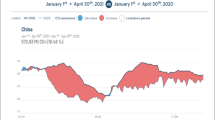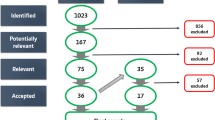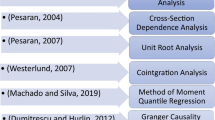Abstract
Policy makers, industrialists and environmentalists express concern that the imposition of tough environmental policies in some countries displaces production, and hence pollution, to countries which impose less tough environmental policies. Yet empirical studies of such impacts suggest they are small. However, these findings are derived from models in which international trade is modelled as being perfectly competitive. In this paper I model trade as imperfectly competitive with scope for strategic behavior by producers, in this case investment in capital. I show that the choice of environmental policy instrument can have a marked impact on the incentives for producers to act strategically, with environmental standards significantly reducing the incentives for strategic overinvestment relative to environmental taxes or no environmental policy at all. Whether welfare is higher using standards or taxes depends on whether producing countries are also significant consumers of the polluting product, and on whether all producing governments act to reduce emissions or only some subset of governments. To assess the quantitative significance of these theoretical results I conduct policy simulations on a calibrated model of the world fertilizer industry. These simulations show that the impact of environmental policy on strategic behaviour can be large.
Similar content being viewed by others
References
Barrett, S. (1994), ‘Strategic Environmental Policy and International Trade’, Journal of Public Economics 54(3), 325–338.
Boero, G., T., Clarke, and A., Winters (1991), The Macroeconomic Consequences of Controlling Greenhouse Cases: A Survey, Department of the Environment Environmental Economics Research Series, HMSO, London.
Burniaux, J-M., J. Martin, G. Nicoletti, and J. Martins (1992), ‘The Costs of Reducing CO2 Emissions: Evidence from GREEN’, OECD Economics Department Working Paper 115, Paris.
Cline, W. R. (1992), The Greenhouse Effect: Global Economic Consequences, Institute for International Economics, Washington, DC.
Helpman, E. and P., Krugman (1989), Trade Policy and Market Structure, MIT Press, Cambridge, MA.
Hoeller, P., A., Dean, and J., Nicolaisen (1991), ‘Macroeconomic Implications of Reducing Greenhouse Gas Emissions: A Survey of Empirical Studies’, OECD Economic Studies 16, 45–78.
Horton, G., J., Rollo, and A., Ulph (1992), Links Between Environmental and International Trade Policies, Department of the Environment Working Paper, HMSO, London.
Krugman, P. (1991), ‘Increasing Returns and Economic Geography’, Journal of Political Economy 99, 483–499.
Perroni, G. and T. Rutherford (1991), ‘International Trade in Carbon Emission Rights and Basic Materials: General Equilibrium Calculations for 2020’, mimeo, University of Western Ontario.
Pezzey, J. (1992), ‘Analysis of Unilateral CO2 Control in the European Community’, The Energy Journal 13, 159–172.
Rauscher, M. (1994), ‘On Ecological Dumping’, Oxford Economic Papers 46, 822–840.
Ulph, A. (1992), ‘The Choice of Environmental Policy Instruments and Strategic International Trade’, in R., Pething (ed.), Conflicts and Cooperation in Managing Environmental Resources, Berlin: Springer-Verlag, pp. 111–128.
Ulph, A. (1994), ‘Environmental Policy, Plant Location and Government Protection’, in C., Carraro (ed.), Trade, Innovation Environment, Dordrecht: Kluwer, pp. 123–166.
Ulph, D. (1994), ‘Environmental Policy, International Trade and Strategic R & D’, in C., Carraro, (ed.), Trade, Innovation, Environment, Dordrecht: Kluwer, pp. 205–228.
Whalley, J. and R., Wigle (1991), ‘Cutting CO2 Emissions: The Effects of Alternative Policy Approaches’, The Energy Journal 12, 109–124.
Author information
Authors and Affiliations
Rights and permissions
About this article
Cite this article
fnUlph, A. Environmental policy instruments and imperfectly competitive international trade. Environ Resource Econ 7, 333–355 (1996). https://doi.org/10.1007/BF00369623
Accepted:
Issue Date:
DOI: https://doi.org/10.1007/BF00369623




